路上ライフ・スタイル 2021- 2023 (Documentary)
Street Life Style - A House is Not a Home

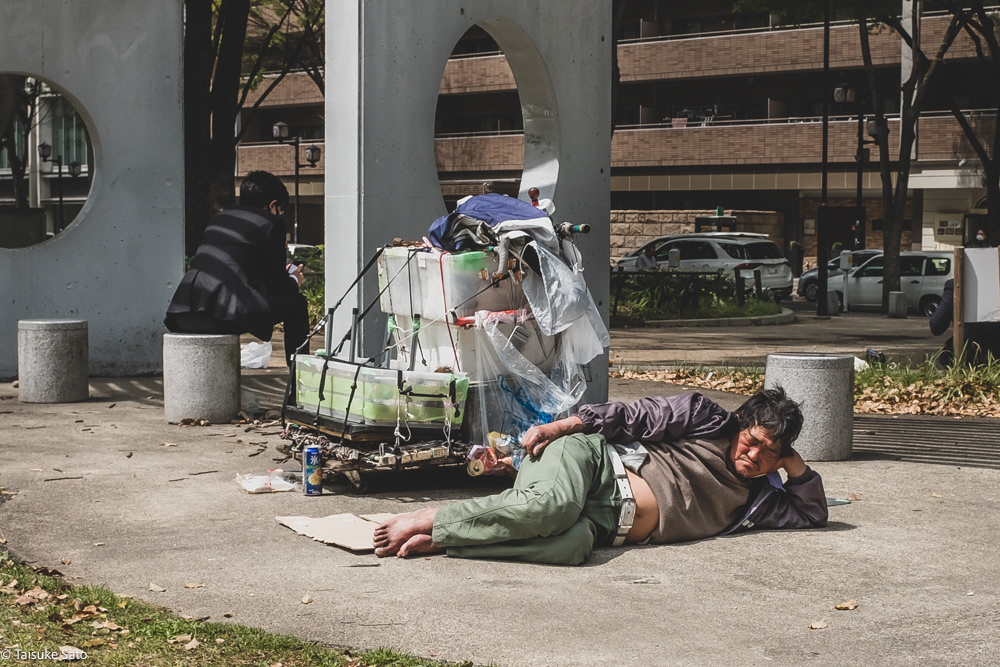
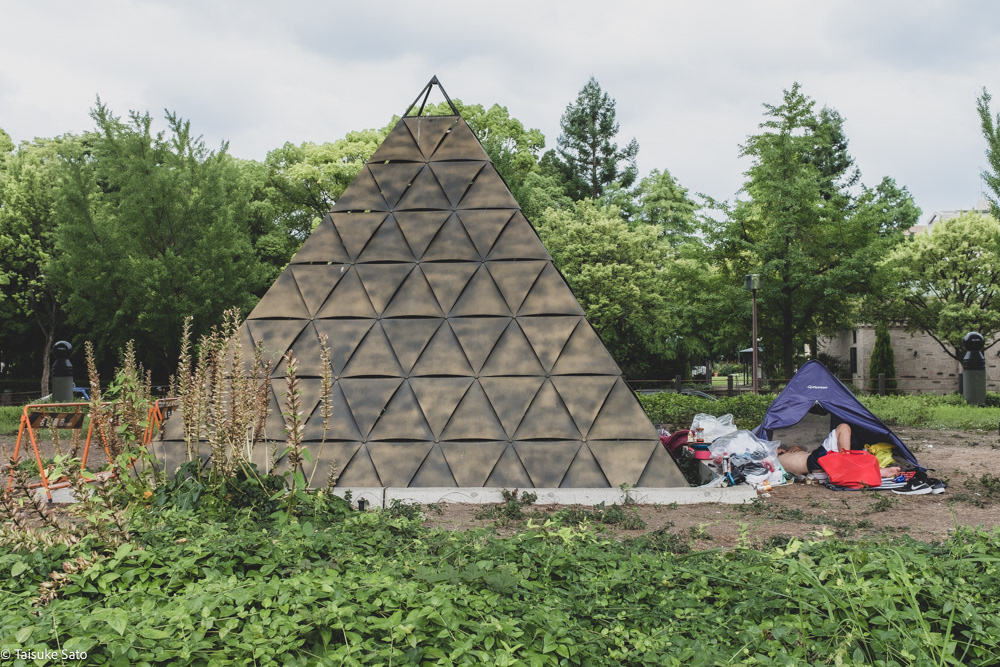
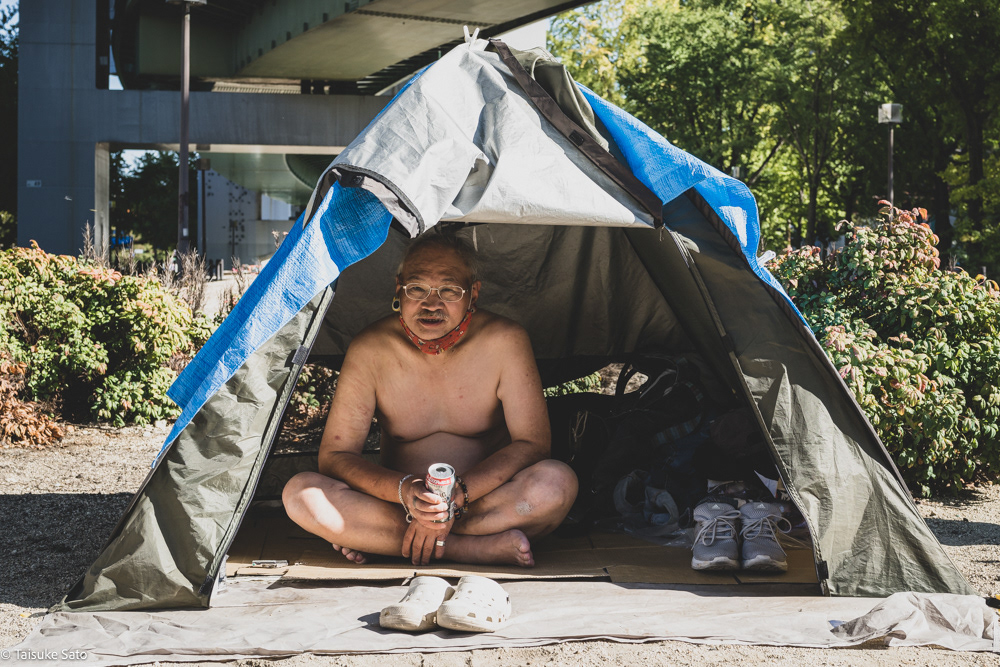
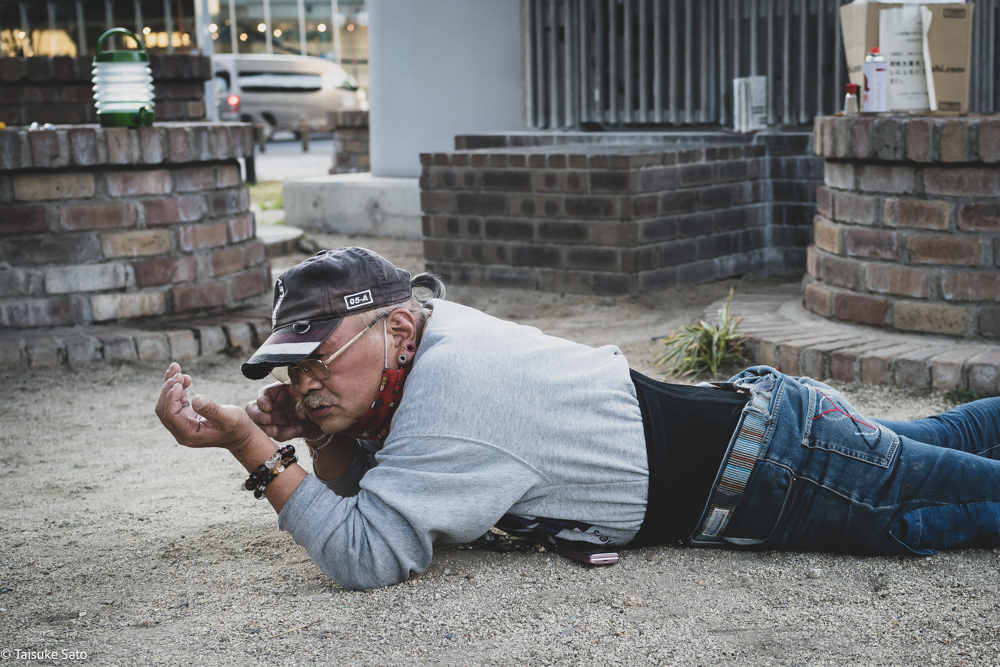
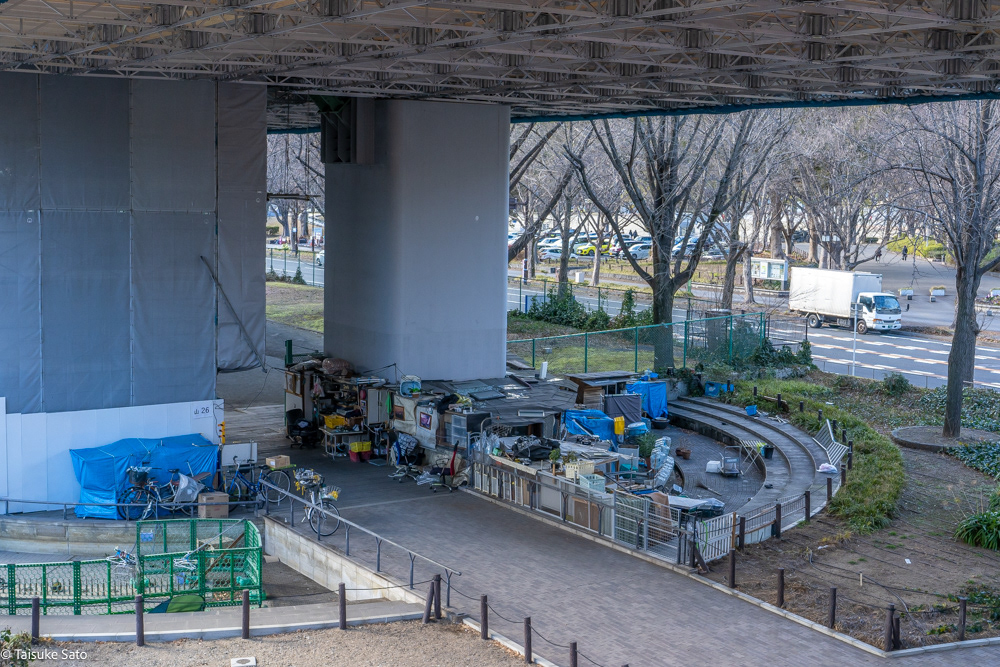
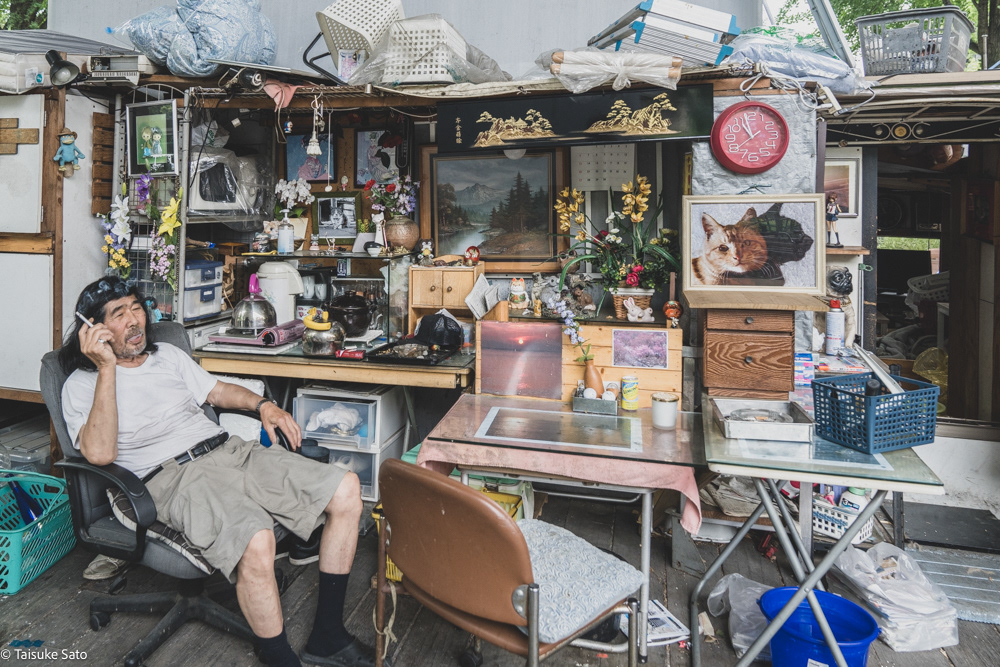
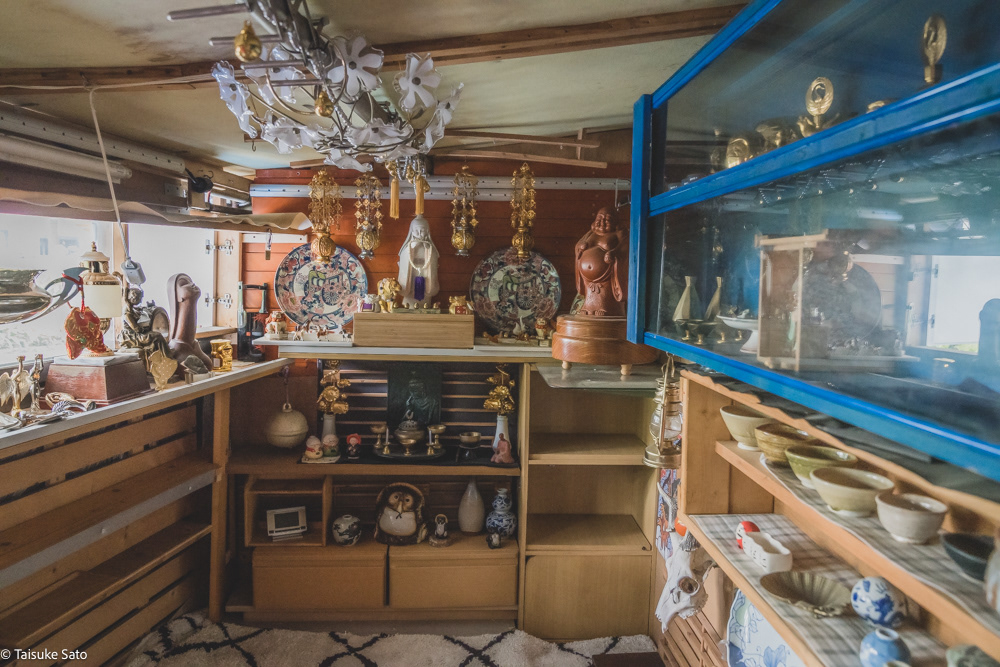
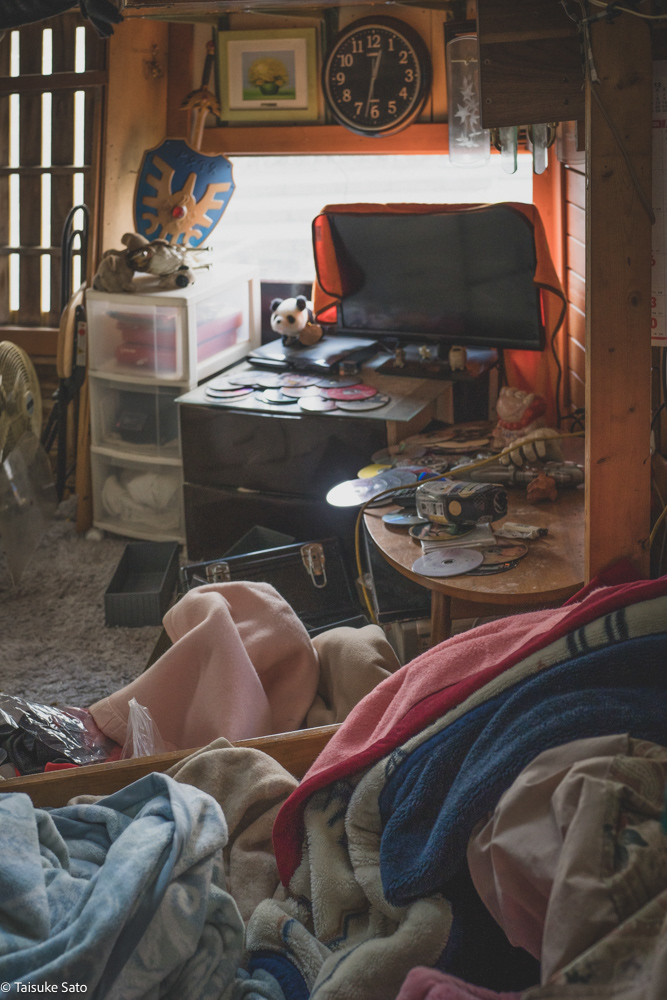
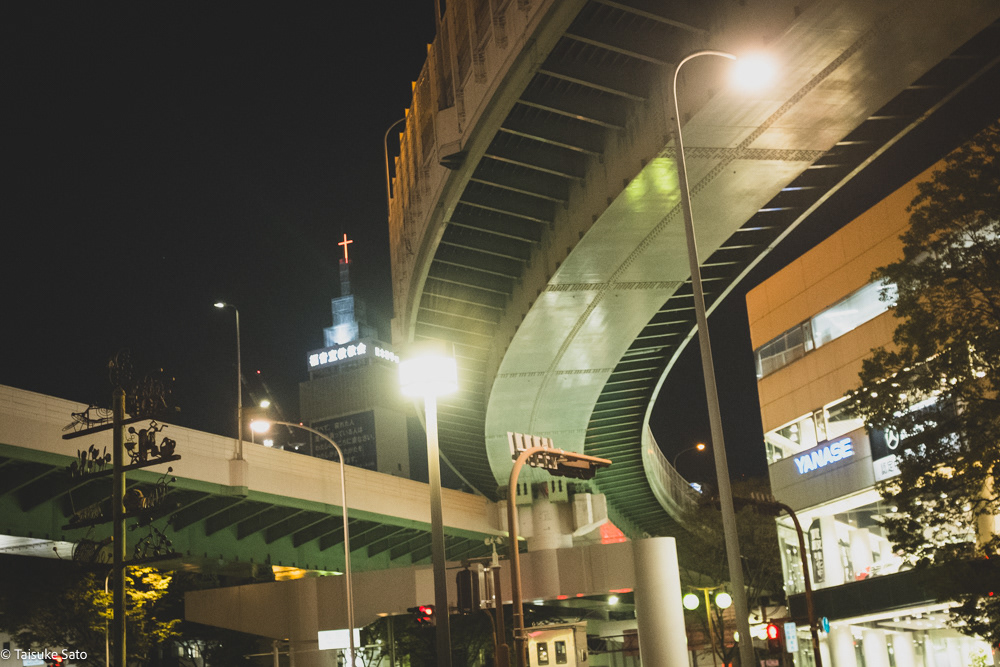
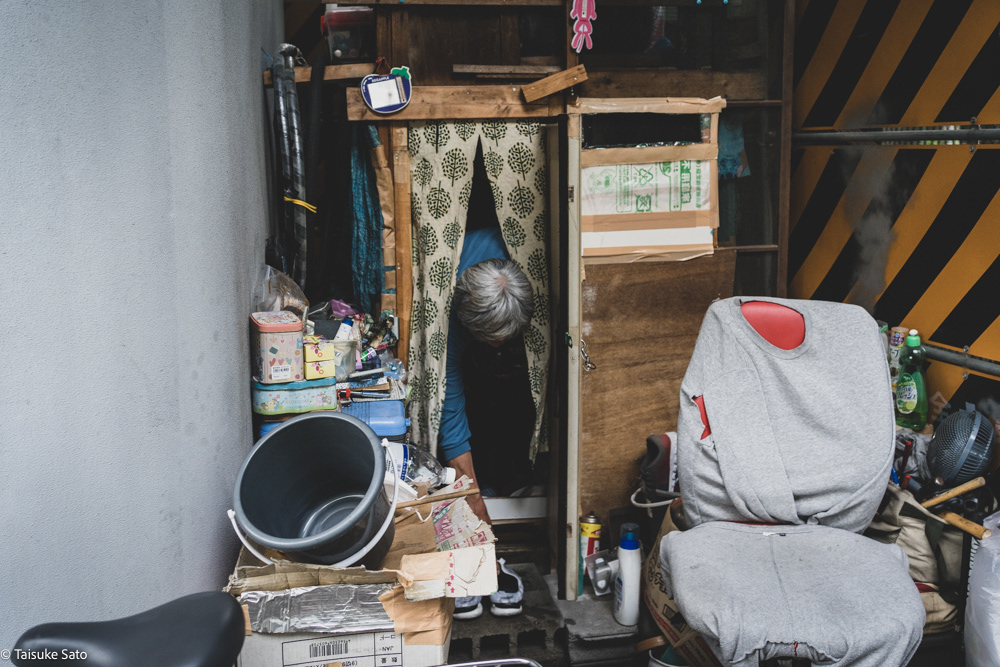
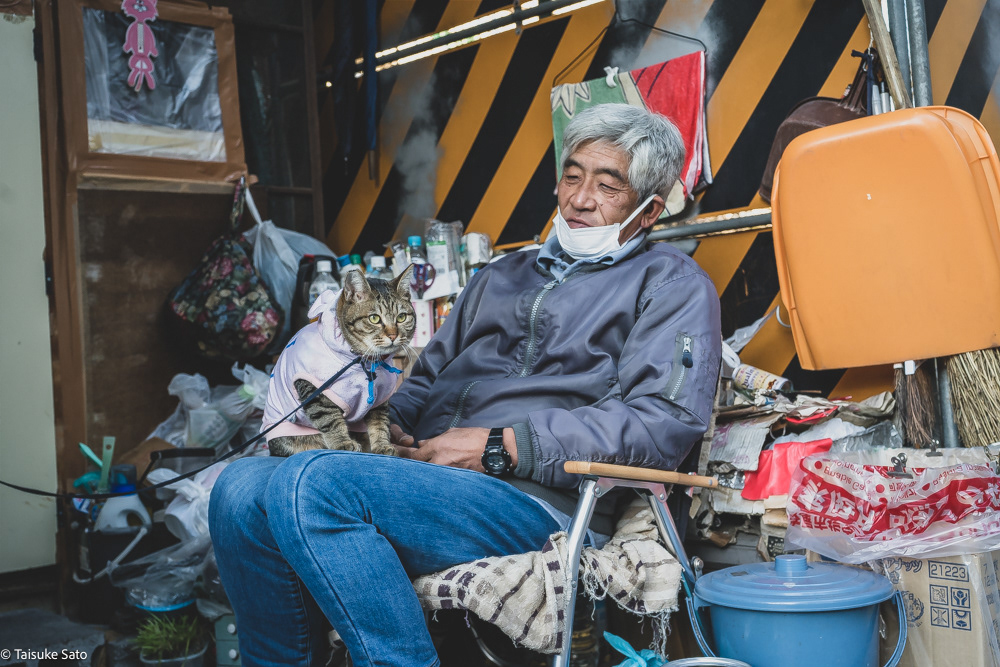
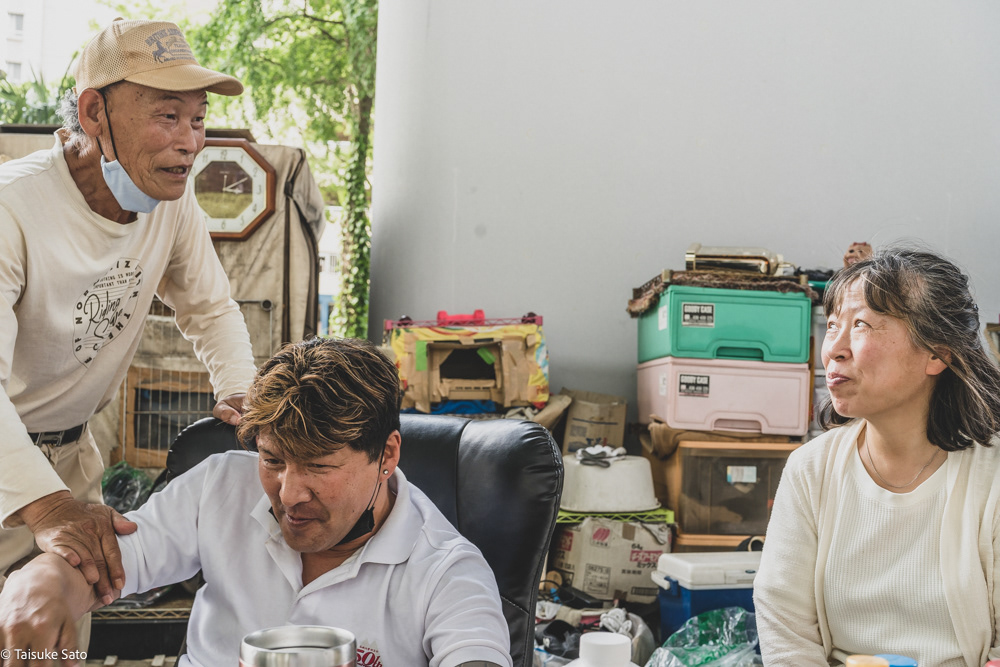


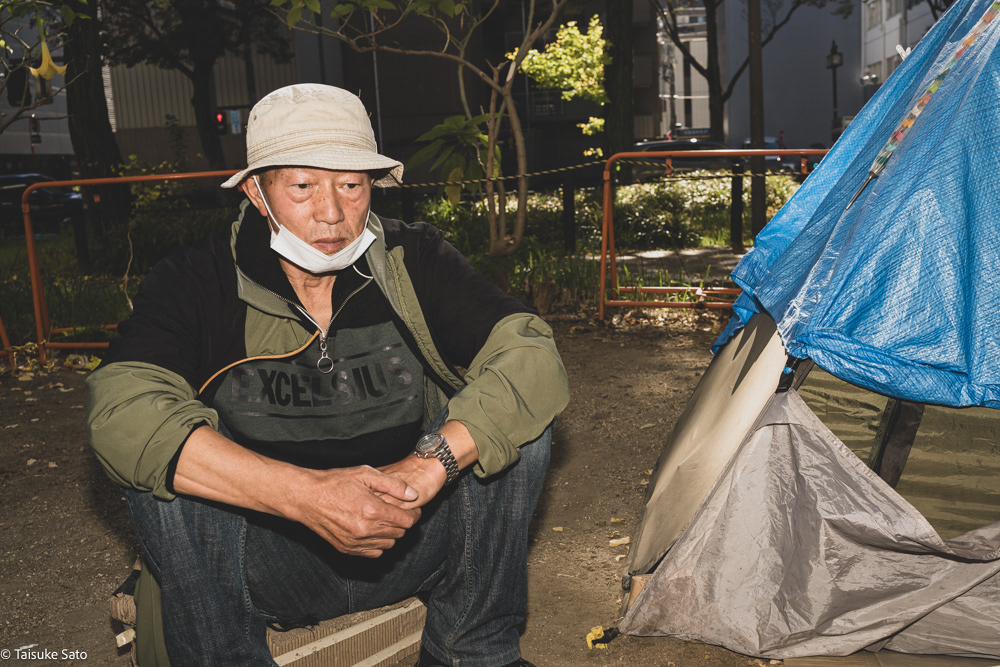
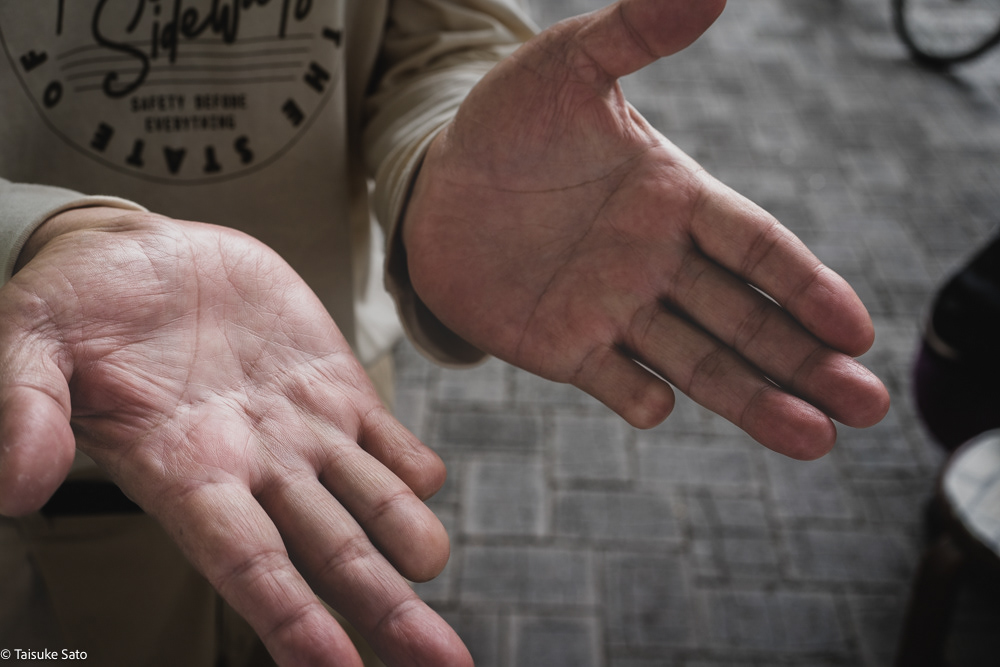
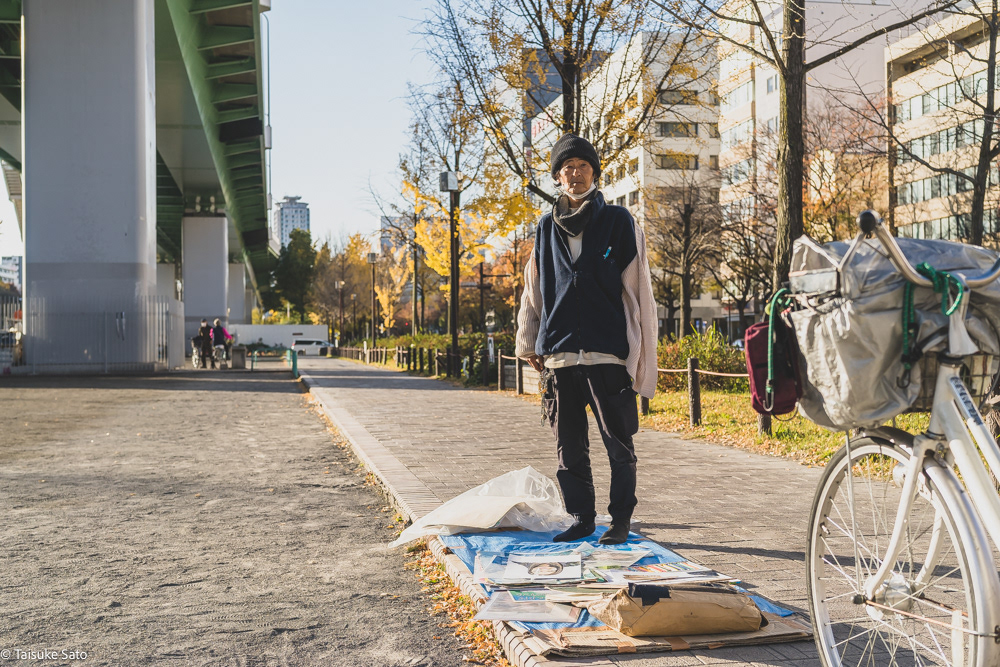
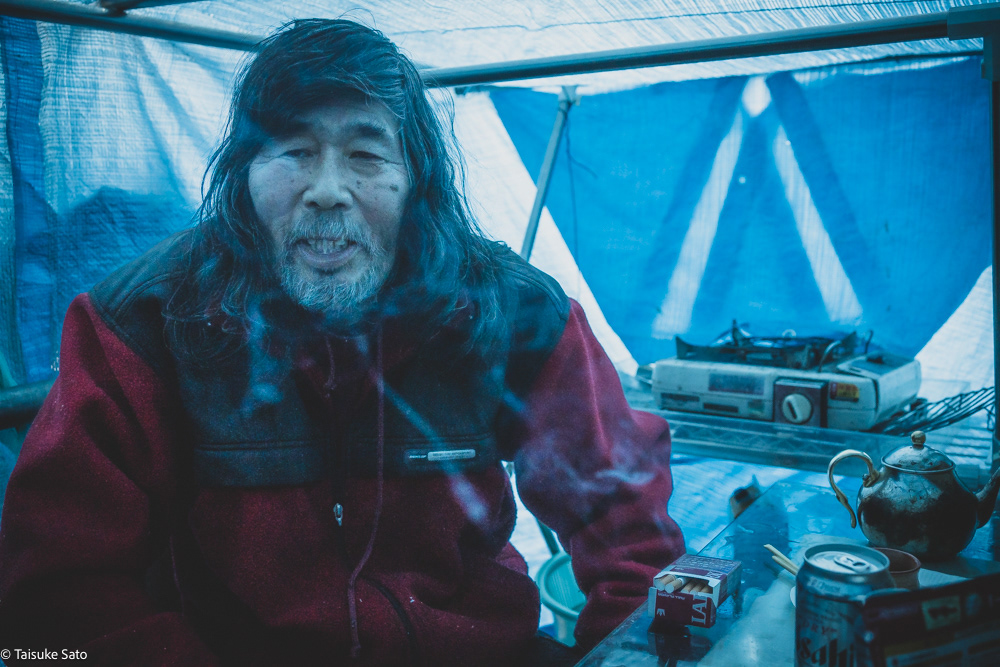




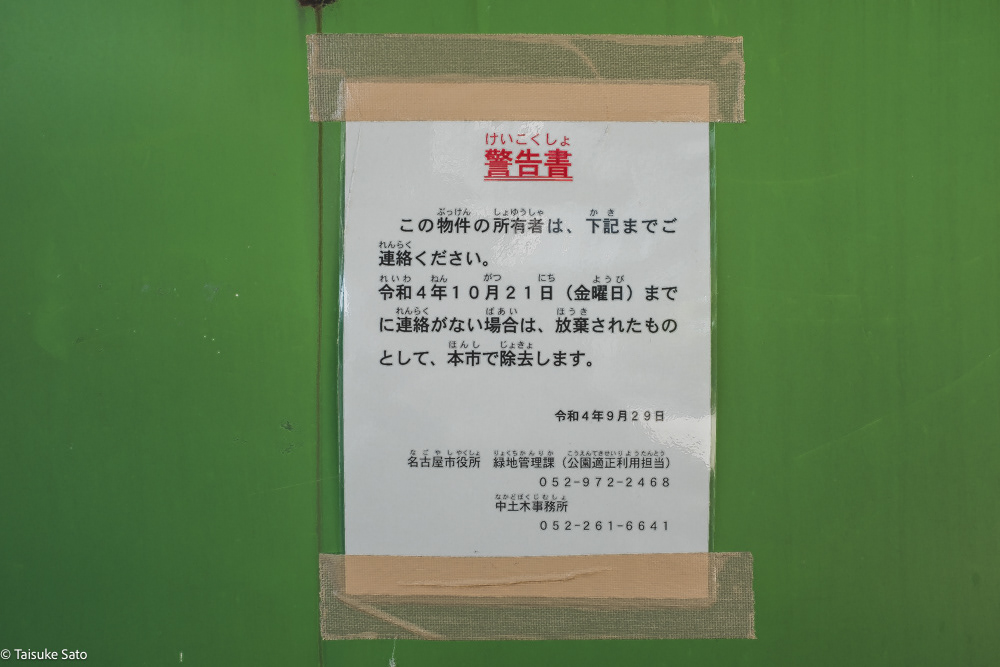
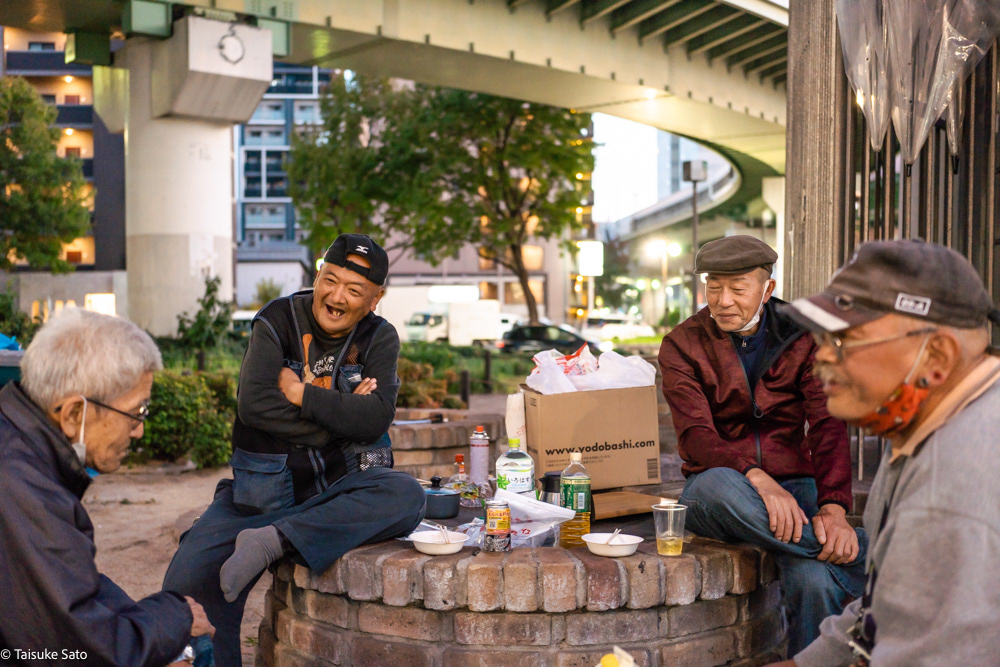


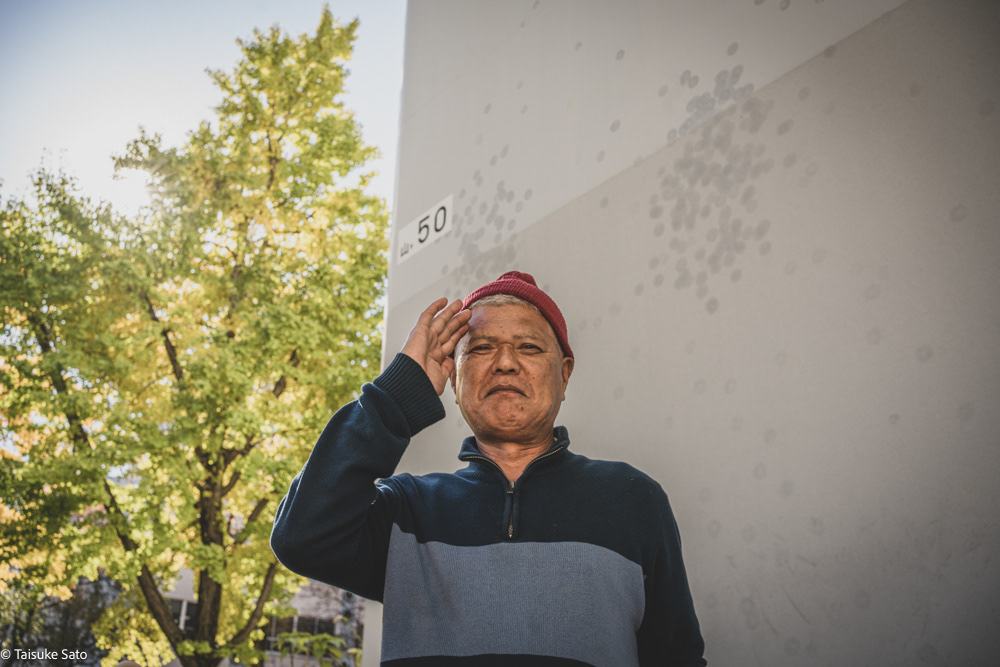
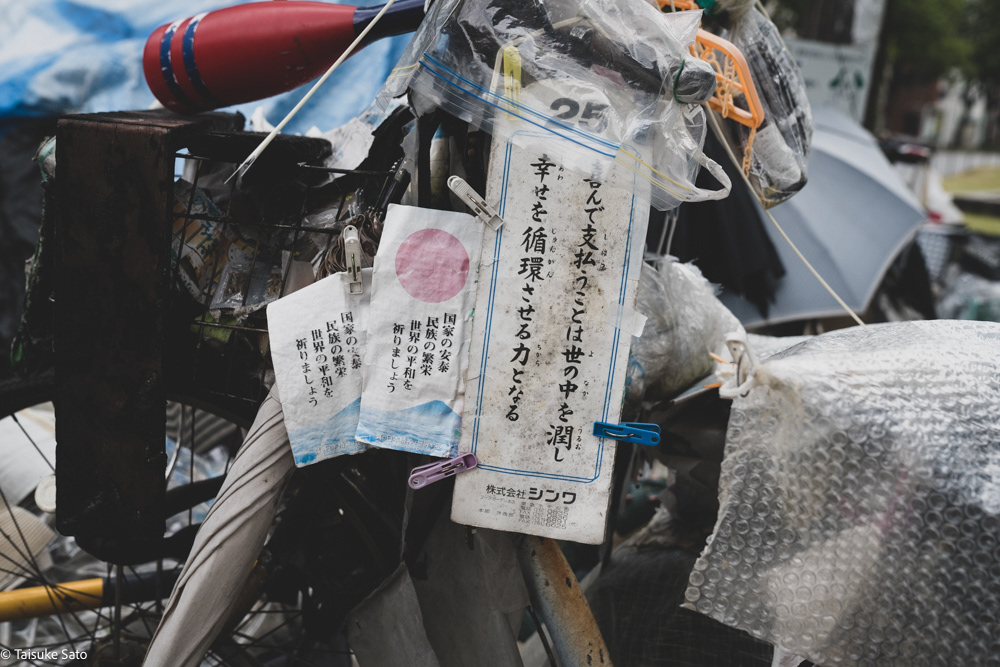
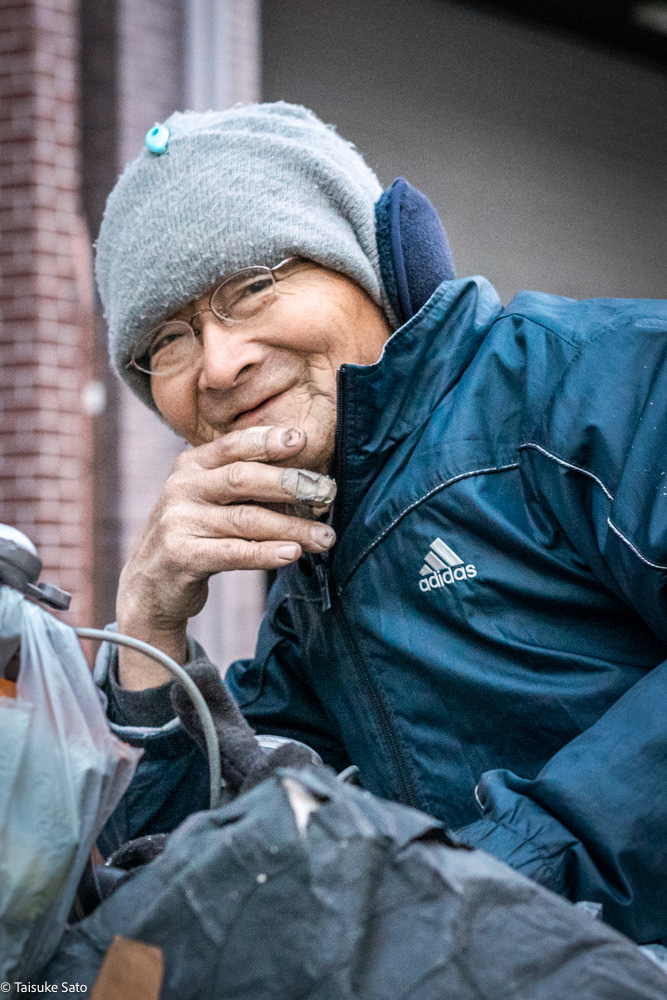
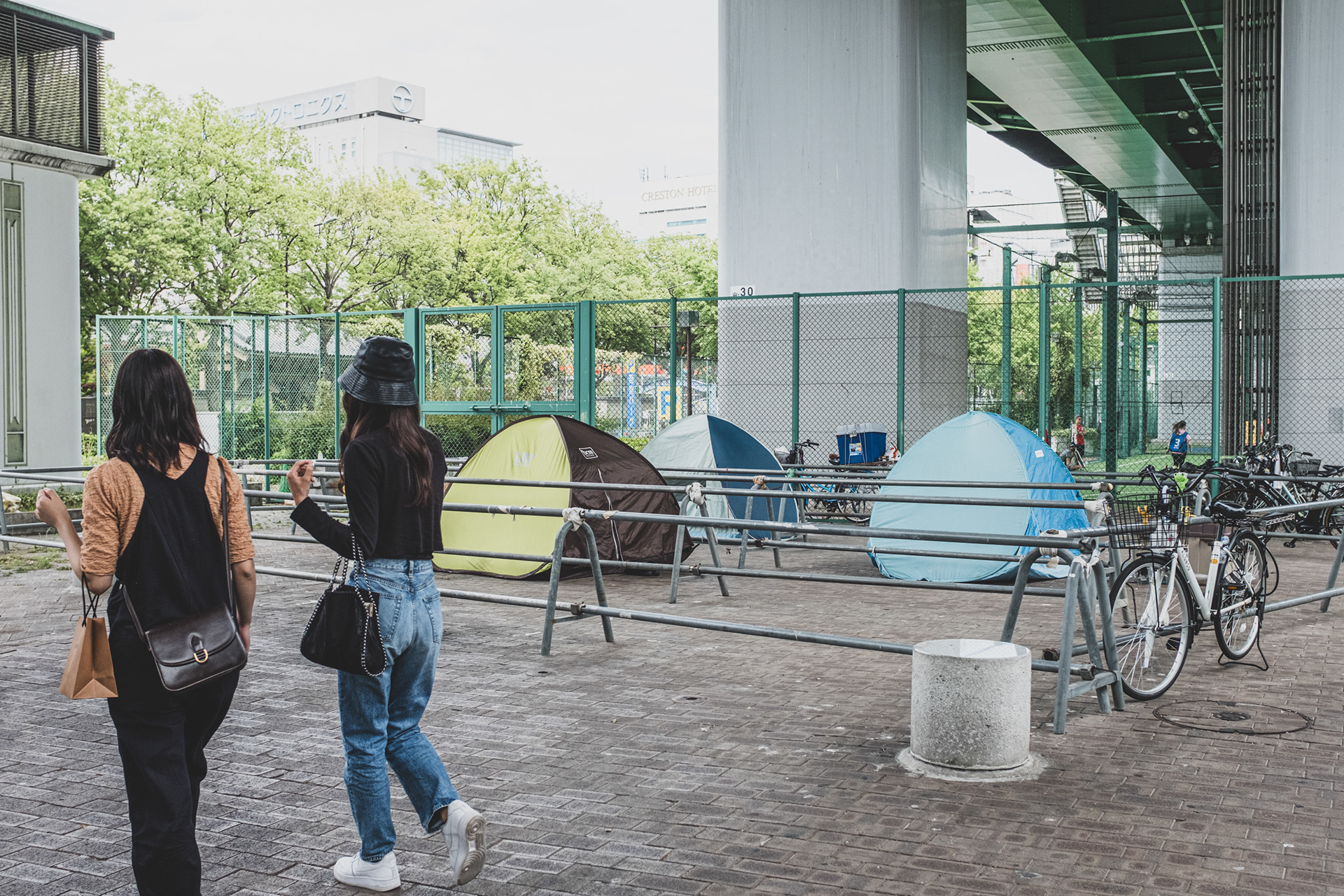
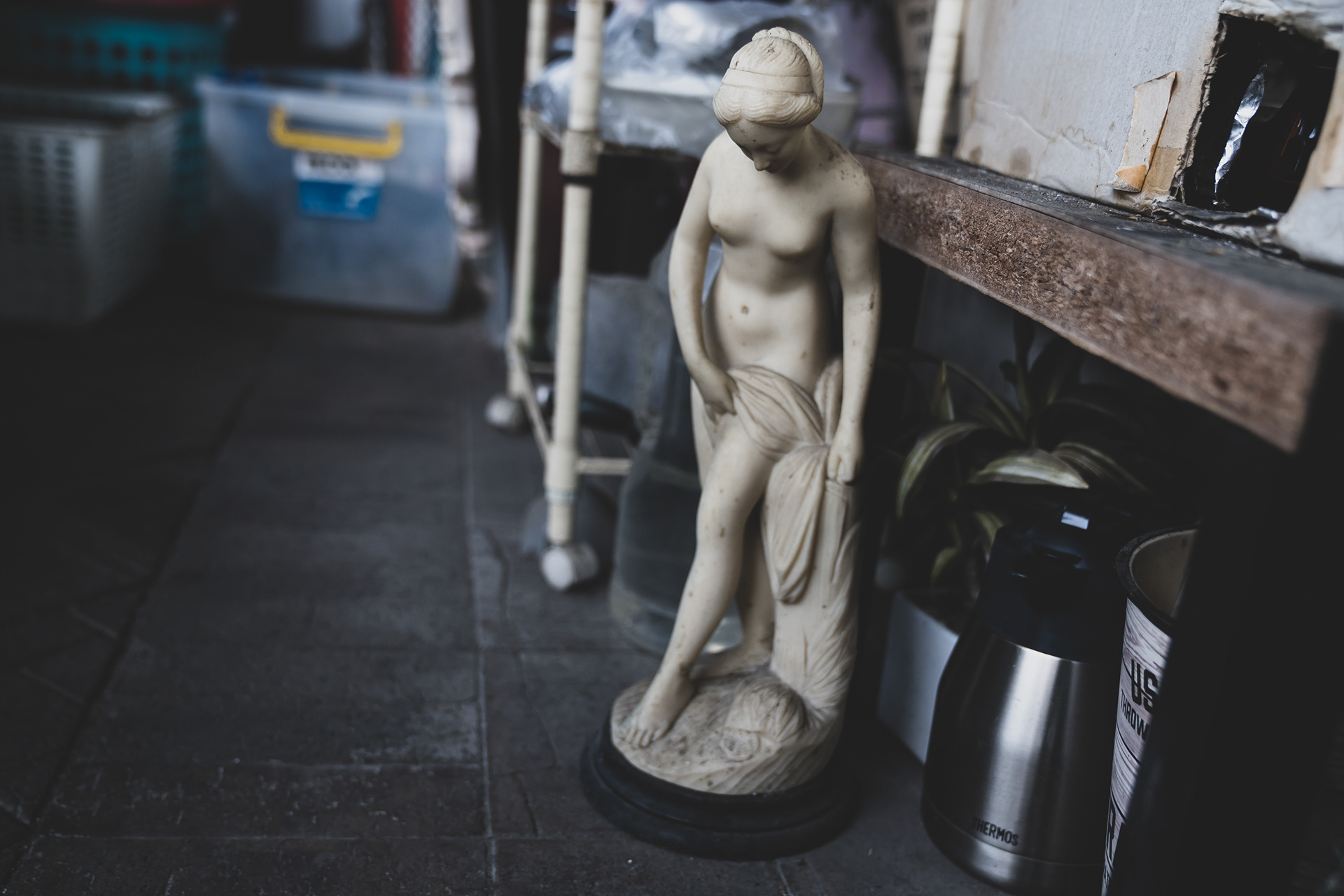
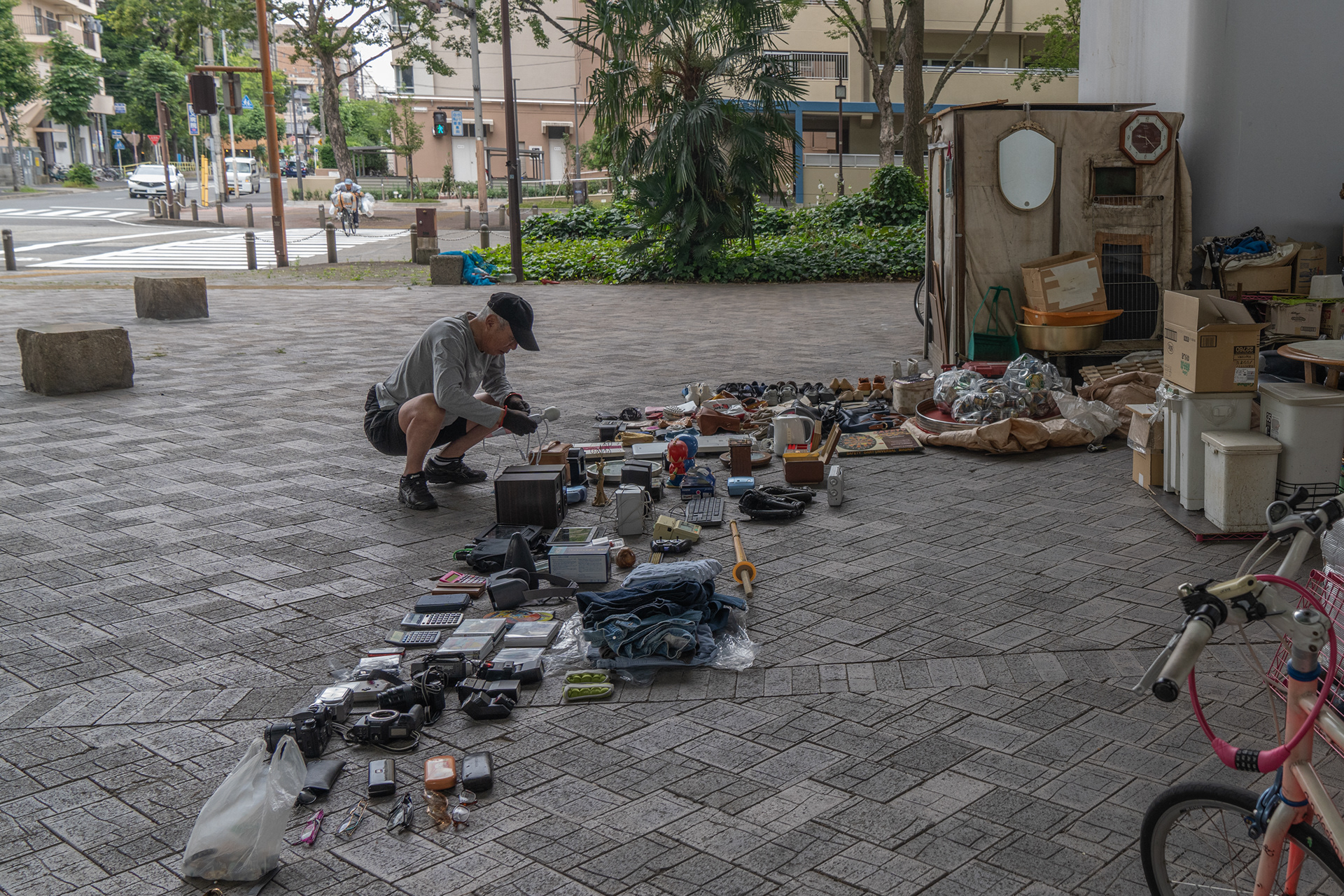
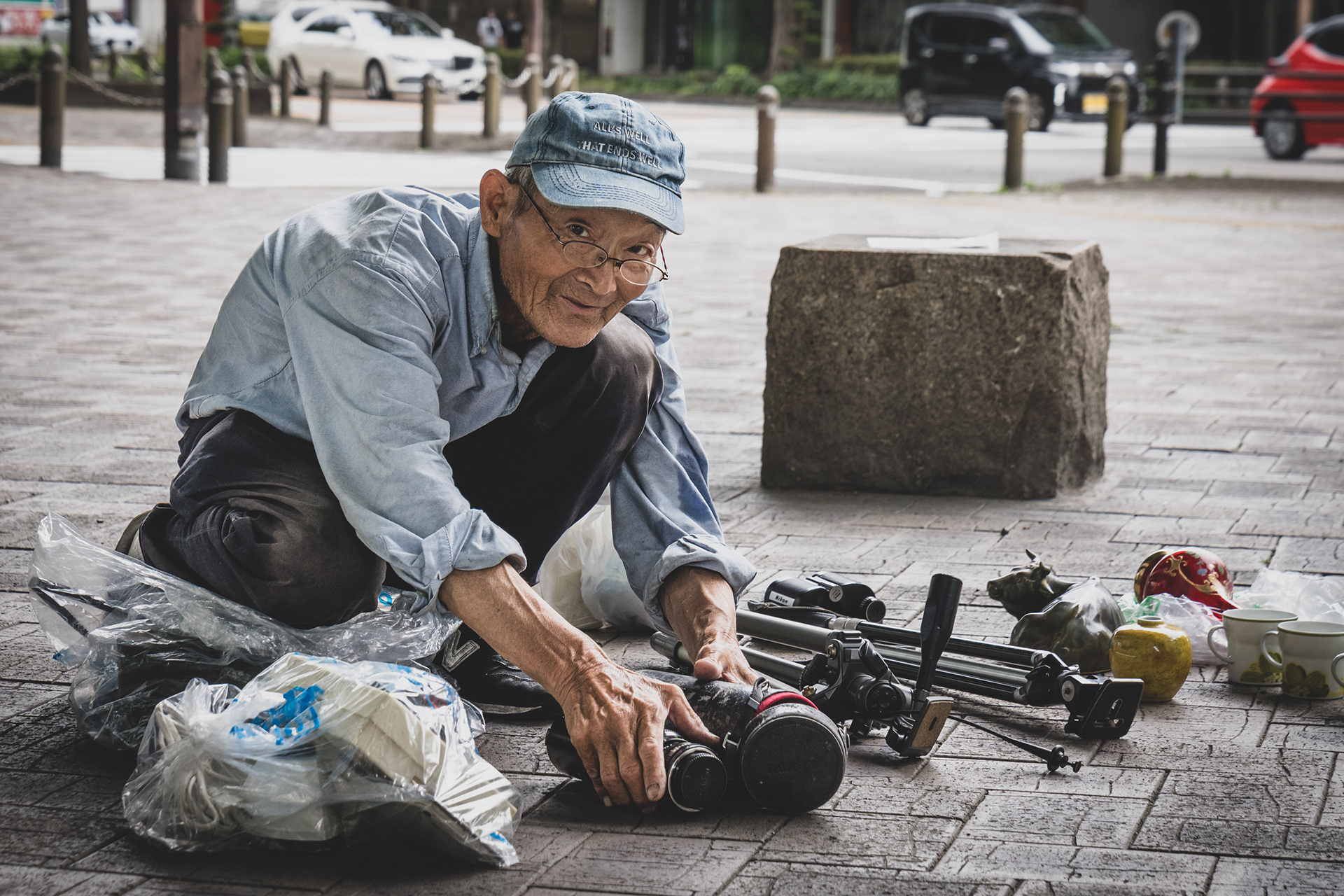


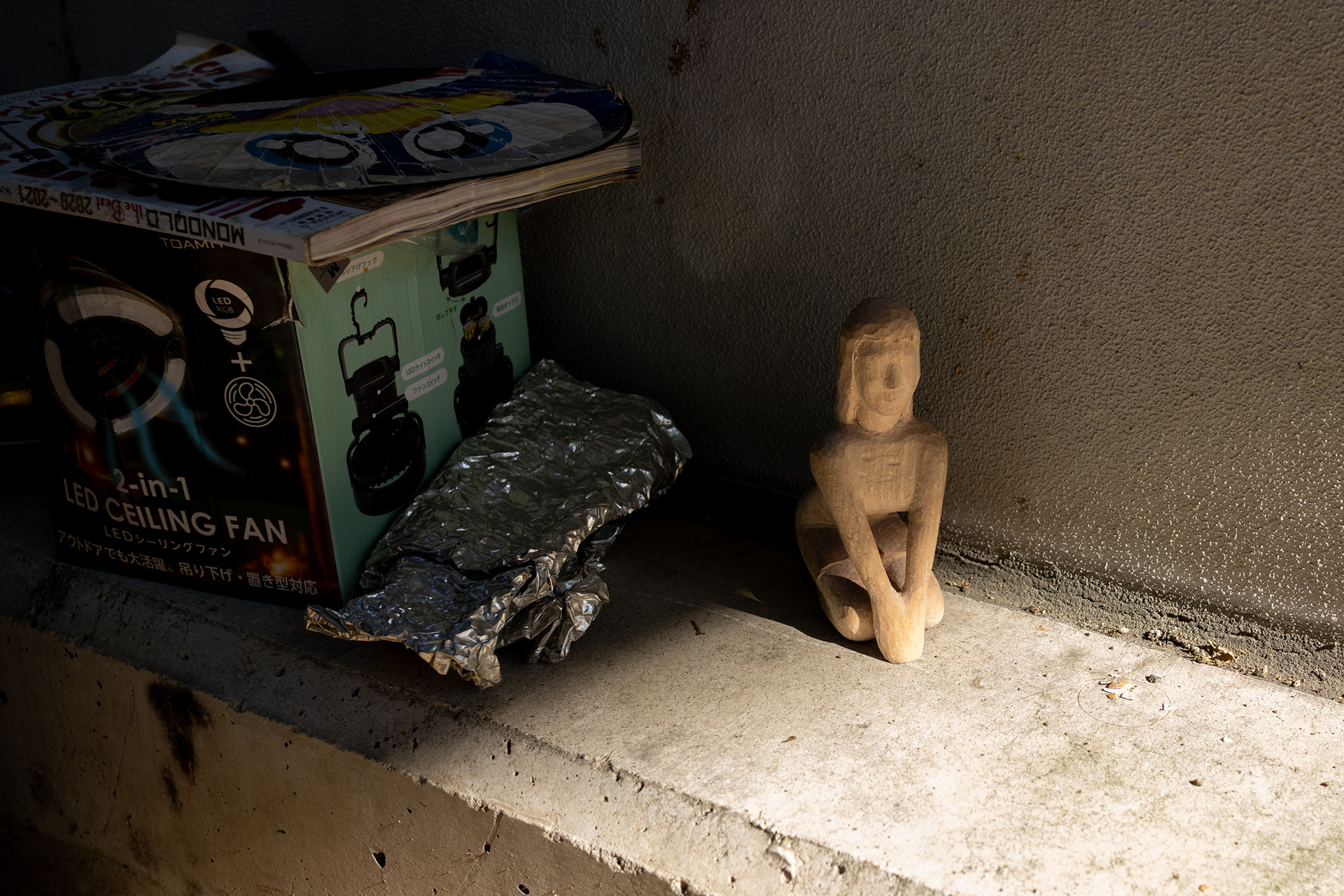
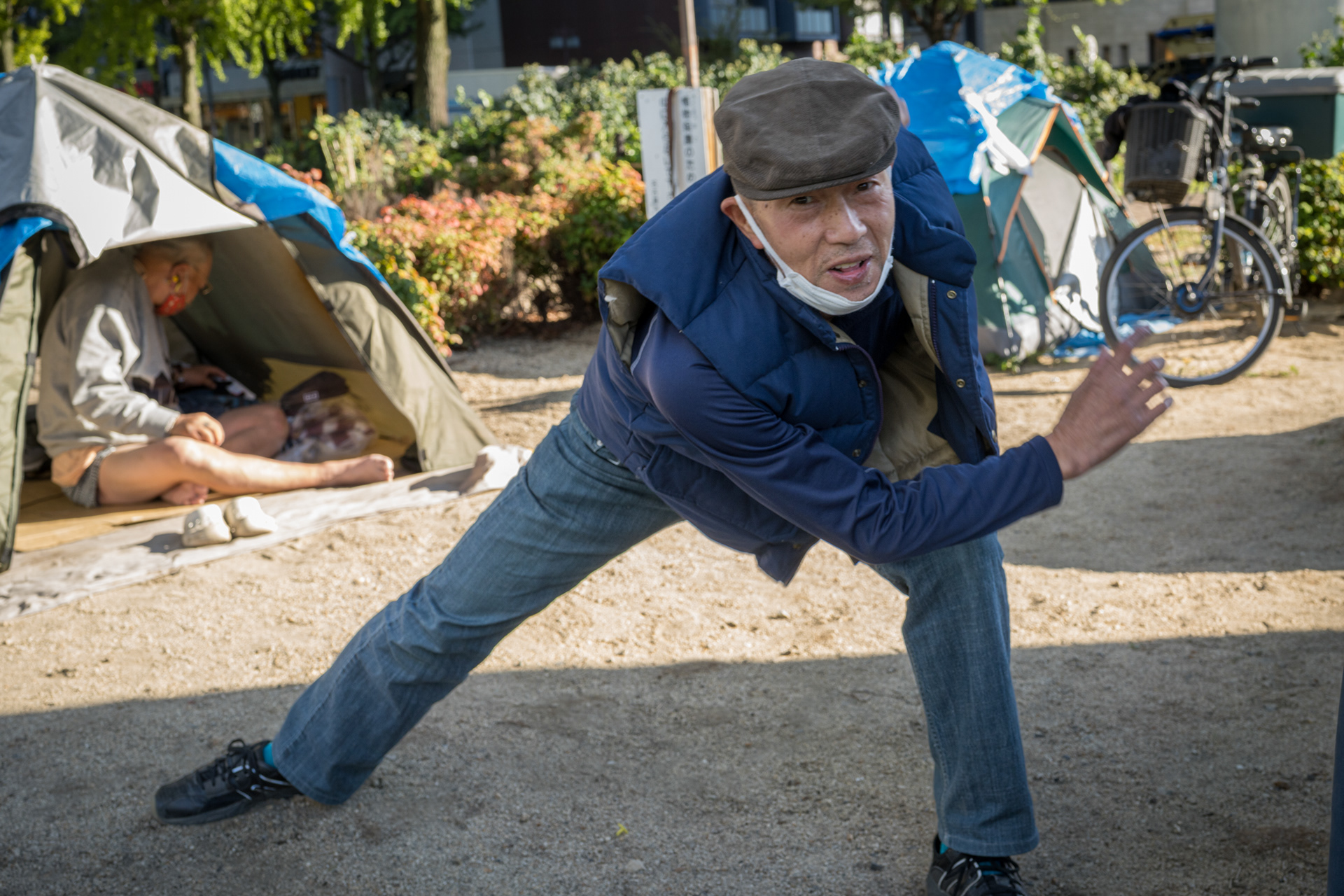




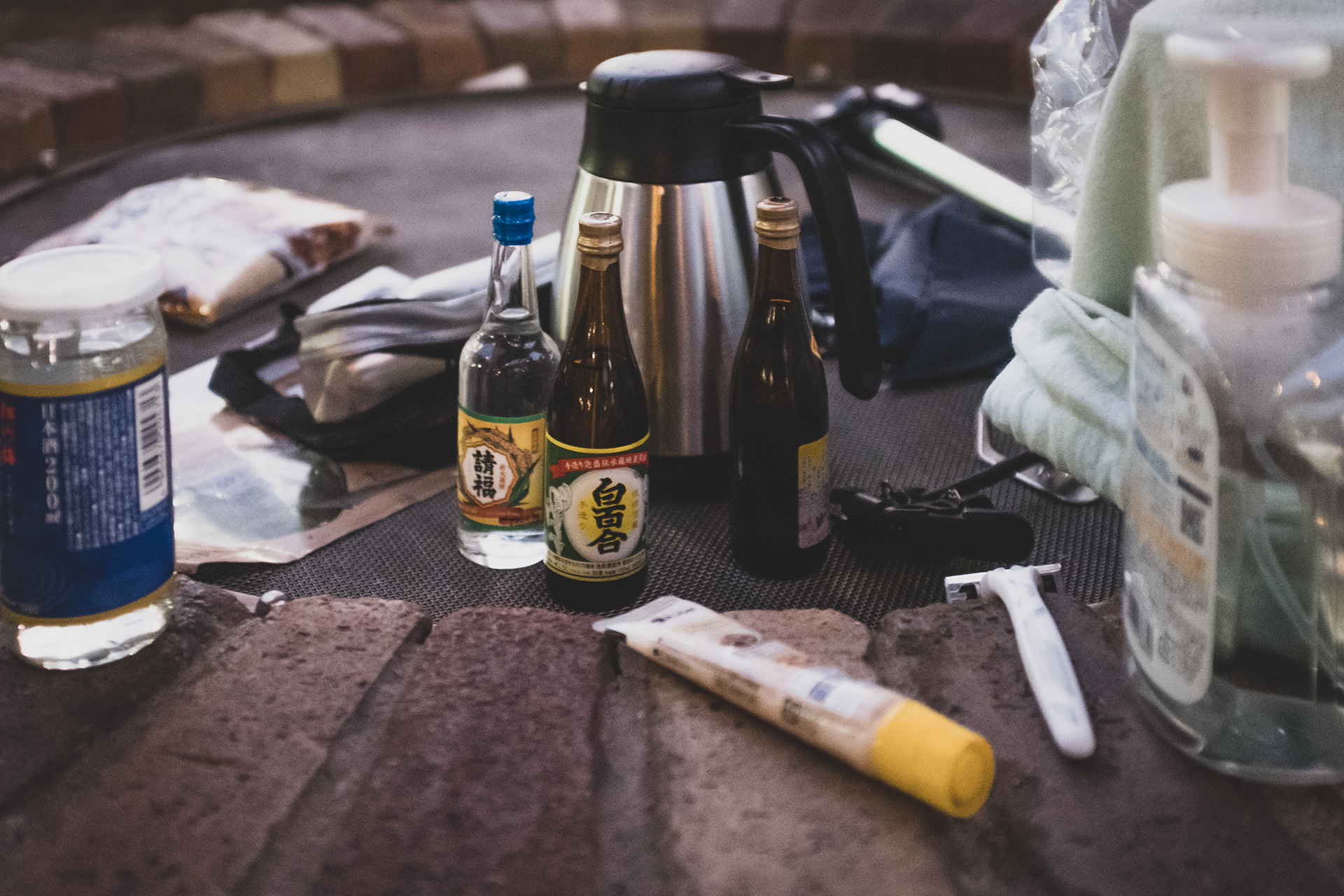
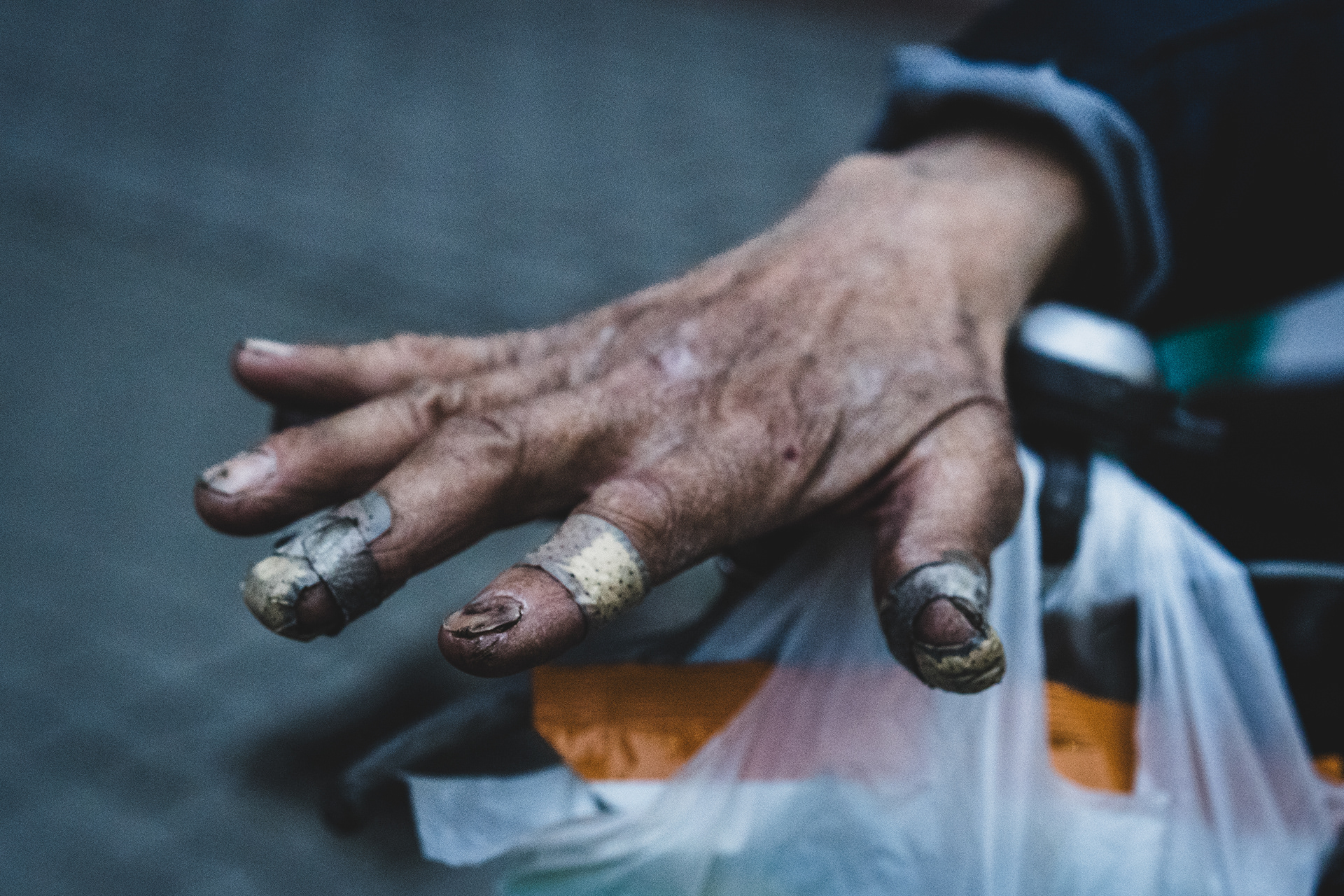
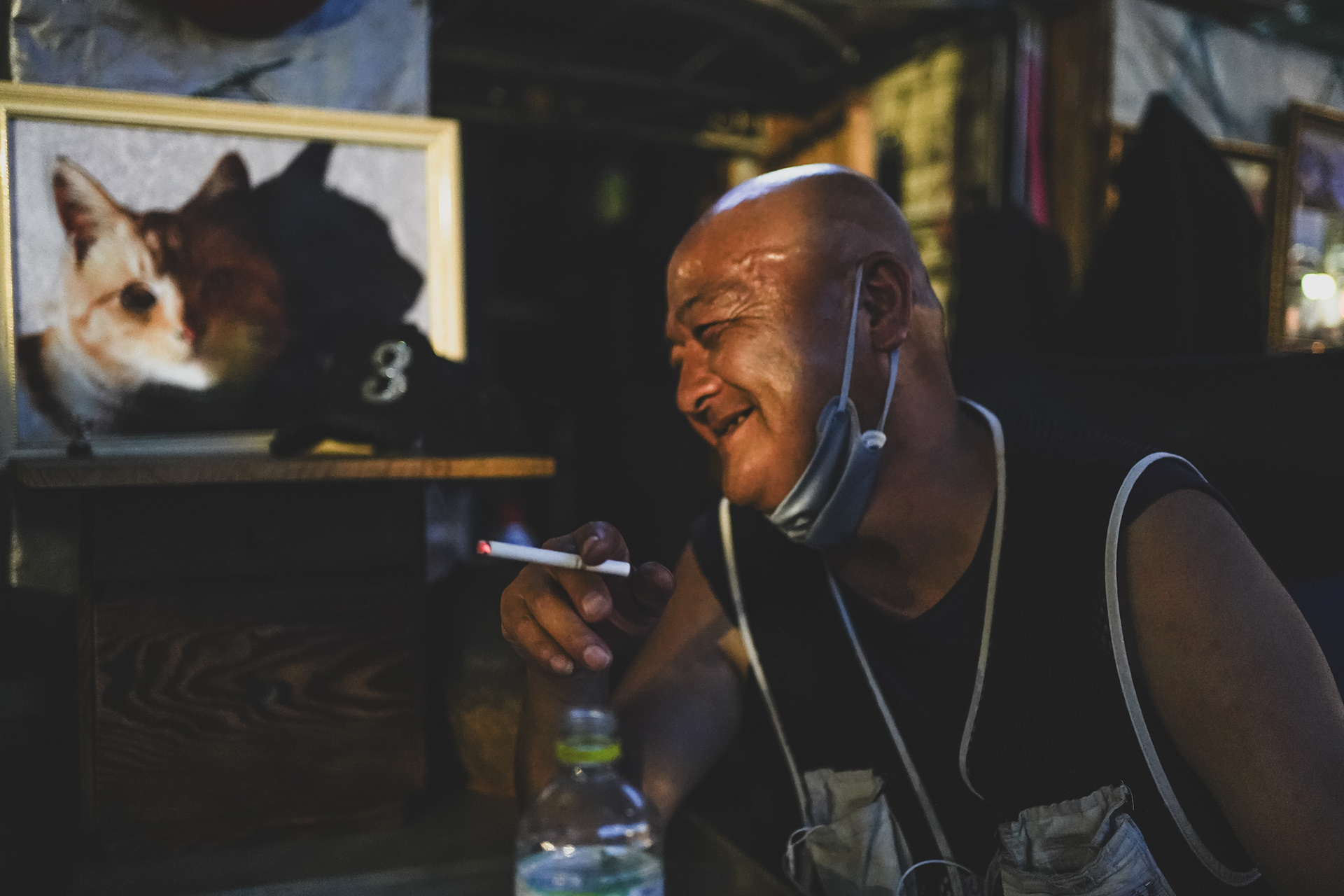
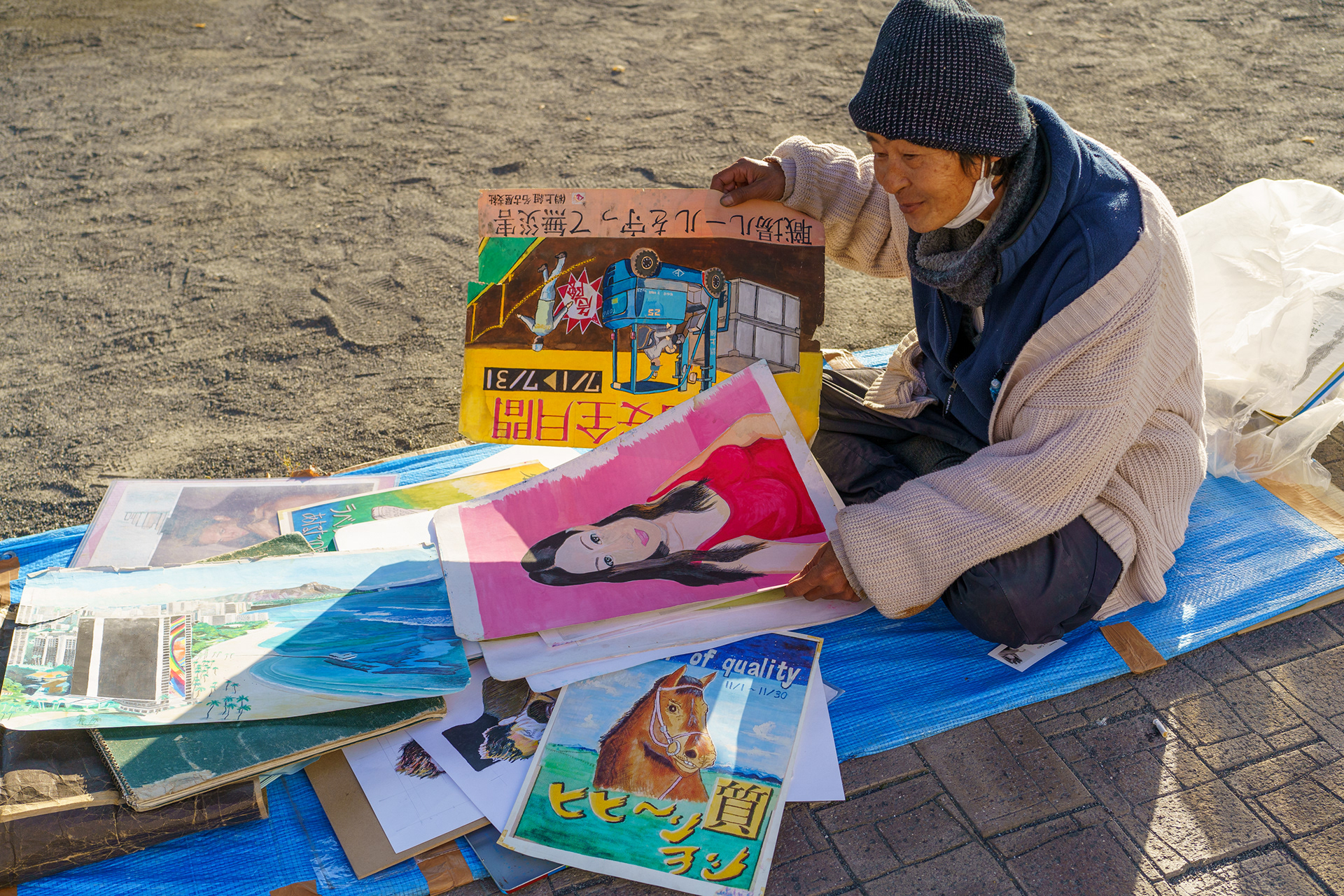

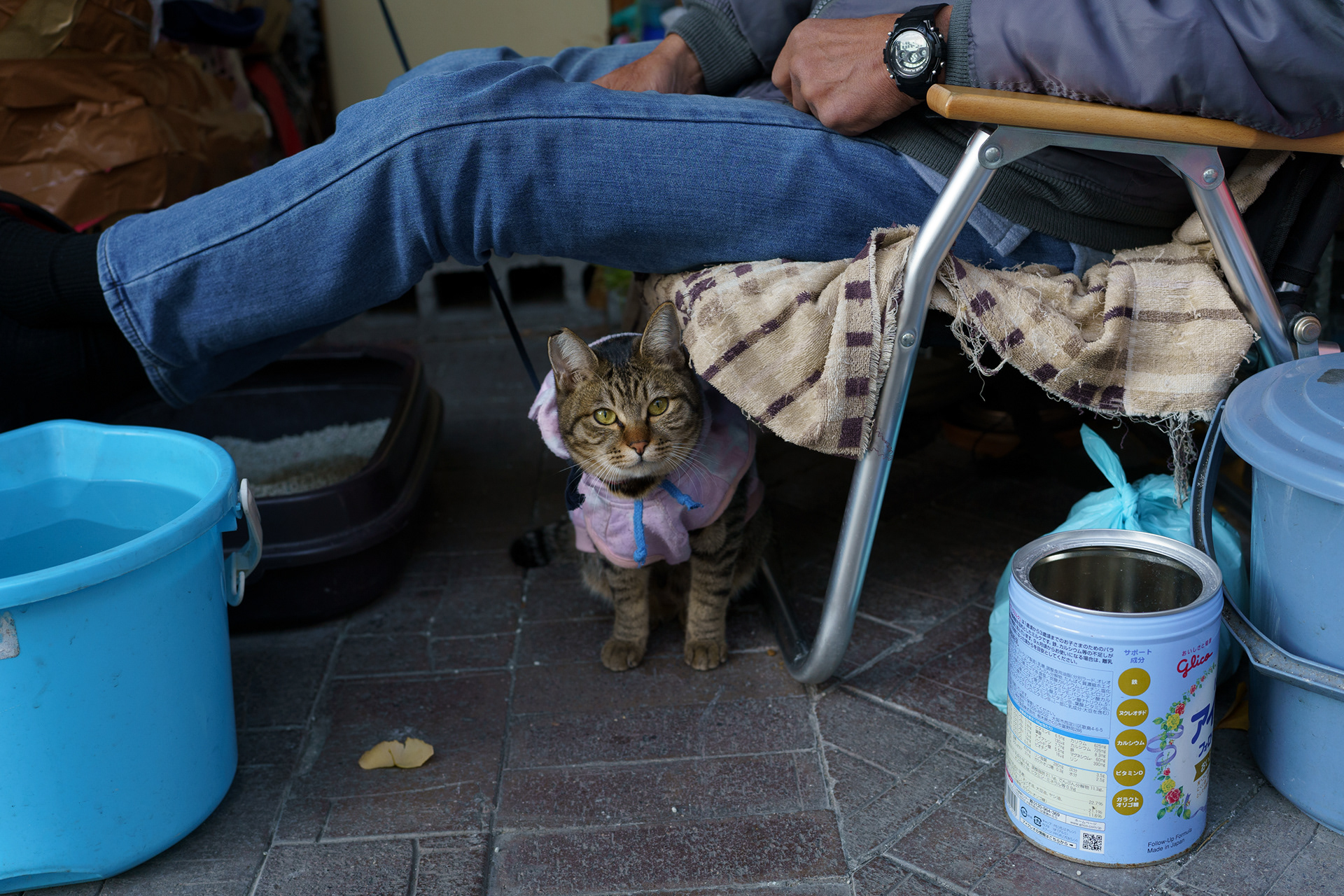
ある高齢のホームレスの写真を撮りました。それはまだコロナ禍だった11月末の寒い日で、長く話を聞いていたので薄暗くなった中でしたが、その表情がとても良かったのです。いい顔をしていると感じました。そして彼らの日常にある喜びや悲しみとはどう言うものだろうと思いました。
私はそれまで、どちらかというと内向きな、自分の中を考察することに意識を傾けていたのですが、他の人々を洞察することに意識を持つきっかけとなりました。私自身もまだ社会復帰ができておらず、話をする相手もいなかった頃です。
これは名古屋市の中心部、名古屋高速道路2号東山線の高架の下で、雨を凌いで暮らすホームレスの人々の物語です。
2年間ほど、訪ねる間に親しくなっていったホームレスの人たちと話をし、ご飯を食べ、お酒を飲みました。私は彼らの人間性や感情の奥にあるものを感じたいと思いました。そして同時に私自身の孤独感との向き合い方を変えたかったのです。
そのうちに、私は彼らを路上で生活することが大丈夫な人、そのようなライフスタイルをとっている人という認識を持つようになりました。もちろん好んでそうなったのではないのでしょうが、平気ではない人にはできない生活です。
子供の頃から家庭環境に問題があったケースでは、いじめや精神疾患などが原因で対人関係の構築をうまくできなかったことを大人、高齢になるまで引きずっています。借金によるものは、家族に迷惑をかけまいとして姿をくらまし、住民票をおかないことで福祉の外に置かれたケース、職場の解雇、また過去の犯罪や薬物が原因であるケース、それぞれに身近に起こりうる問題が発端となっています。
ホームレスになってから、数人でコミュニティーを作る人、一人を貫く人、支援を拒む人、これも人間は多様で、ひとくくりにはできません。また、彼らがなぜ他の場所ではなく、ここに(集められて)いるのかということも注視すべきことです。
それからまた時が過ぎ、撮影した幾人かは亡くなり、ある人は刑務所や施設に、ある人は全てそこに残したままいなくなってしまいました。
彼らの心の内はわかりませんが、どの人も同様に人生には波があり、生きていくことは簡単ではないと感じることもあれば、それが過ぎるとフットワークは軽くなり、太陽や自然の恵みに感動し、そして人との関わりもまた貴重なものだということに気づくのだと思います。そしてついには自分を含めた全てを愛せるようになるのでしょう。 彼らの弱さと強さ、垣間見える虚栄心や欲望もまた、人間の本質であるように感じます。
20年前には1700人以上だった名古屋市のホームレスの人口は、2023年には80人を下回りました。ボランティアや教会などの地道なサポート、市の施策もあってのことです。しかしその減少には違う側面も私は感じています。
そしてこれは、「ハウス」はあるが「ホーム」のない私が、「ハウス」はないが「ホーム」のある彼らに何かを求めていた物語でもあります。
I took a photograph of an elderly homeless person. It was a cold day at the end of November, still in the midst of the pandemic. Despite the dimming light after a long conversation, their expression was very good. I felt they had a pleasant face. And I wondered about the joys and sorrows that exist in their daily lives.
Until then, I had been somewhat introspective, focusing on examining myself. But this became an opportunity to be more aware of understanding other people. It was a time when I hadn't yet reintegrated into society and had no one to talk to.
-----------------------------------
This is the story of homeless people living under the elevated section of the Nagoya Expressway Route 2 in the city center of Nagoya, enduring the rain.
For about two years, I talked with homeless people I became close to, shared meals, and had drinks. I wanted to feel what lay beneath their humanity and emotions, while also hoping to change how I confronted my own sense of loneliness.
Eventually, I came to recognize them as people who are okay with living on the streets, adopting such a lifestyle. Of course, it's not something they necessarily prefer, but it's a way of life that those who aren't okay with it couldn't endure.
-----------------------------------
In cases where there were problems in the home environment since childhood, issues like bullying and mental illness hindered the ability to build relationships with others, and these issues often persist into adulthood and old age. Some ended up in debt and disappeared to avoid burdening their families, some fell outside of the welfare system by not registering their residency, some faced dismissal from their jobs, and others were affected by past crimes or drug use. Each situation stems from common problems that can be found close to home.
After becoming homeless, some form communities with a few people, some persist alone, some refuse support—humanity is diverse, and cannot be categorized easily. Additionally, it's important to consider why they are gathered here, not elsewhere.
-----------------------------------
As time passes, some of those photographed pass away, some end up in prison or institutions, and some simply vanish, leaving everything behind.
I may not understand their inner thoughts, but everyone experiences the ups and downs of life. Living isn't easy, but once the storm passes, steps become lighter, and one can appreciate the sun, the blessings of nature, and the value of human connections. Eventually, they may even come to love everything, including themselves. I sense both weakness and strength in them, glimpses of vanity and desire, like facets of human nature.
-----------------------------------
The homeless population in Nagoya, which was over 1700 people 20 years ago, dropped to under 80 in 2023, a significant decrease. This is partly due to diligent support from volunteers, churches, and municipal policies. However, I also sense another aspect behind this decrease.
-----------------------------------
This is also a story of someone like me, who has a "house" but no "home," seeking something from those who have "homes" but no "houses."